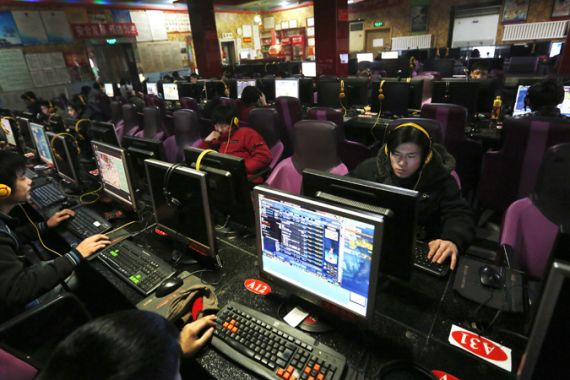China completes monitoring scheme for Tibet
Beijing rolls out campaign to crack down on what officials term “rumours” in the remote western region.

China has undertaken a monitoring scheme in Tibet asking all internet and phone users to register under their real names and addresses, to curb “social problems”.
Government official Nyima Doje told state media on Wednesday that the scheme “is conducive to protecting citizens’ personal information and curbing the spread of detrimental information”.
Keep reading
list of 4 itemsRare deep-sea squid filmed by scientists
Palestinian life under Israeli occupation: An illustrated guideThis article will be opened in a new browser window
Boeing’s jets turn 70: A timeline of highs, lows and turbulence
Tibetans are already closely watched due to decades of unrest in protest at Chinese rule.
“The real-name registration will help resolve these problems while benefiting the long-term, sound development of the internet,” added another official Dai Jianguo.
By the end of last year, all 2.76 million fixed line and mobile telephone users and 1.47 million internet users in Tibet had registered for services under their real identities.
The growing popularity of the internet and mobile phones has “brought about social problems, including the rampant circulation of online rumours, pornography and spam messages”, said Jianguo.
Timely announcement
China’s announcement of the completion of the programme in Tibet comes as both Chinese media and the government have expressed indignation at accusations of mass surveillance by Washington.
The revelations of the US National Security Agency’s (NSA) spying programmes were made by former CIA employee and NSA contractor, Edward Snowden, currently holed up in Hong Kong.
The former British colony is supposed to be fairly autonomous, enjoying freedoms such as an independent judiciary and a free press not found across mainland China.
However activists have said these freedoms have steadily been eroded since the city returned to Chinese rule in 1997.
On Monday China demanded that the US explain its monitoring programmes to the international community, though China itself routinely monitors its own population.